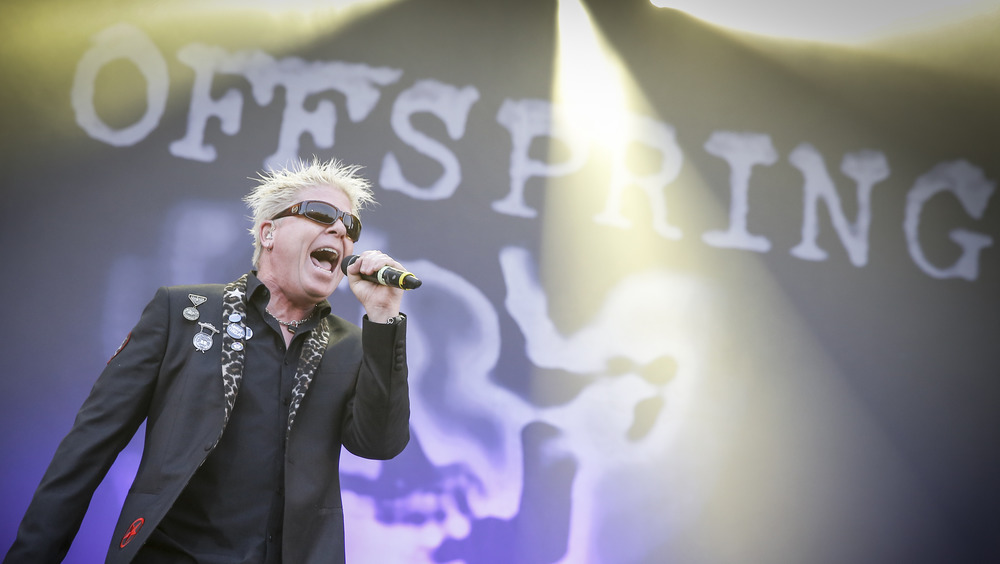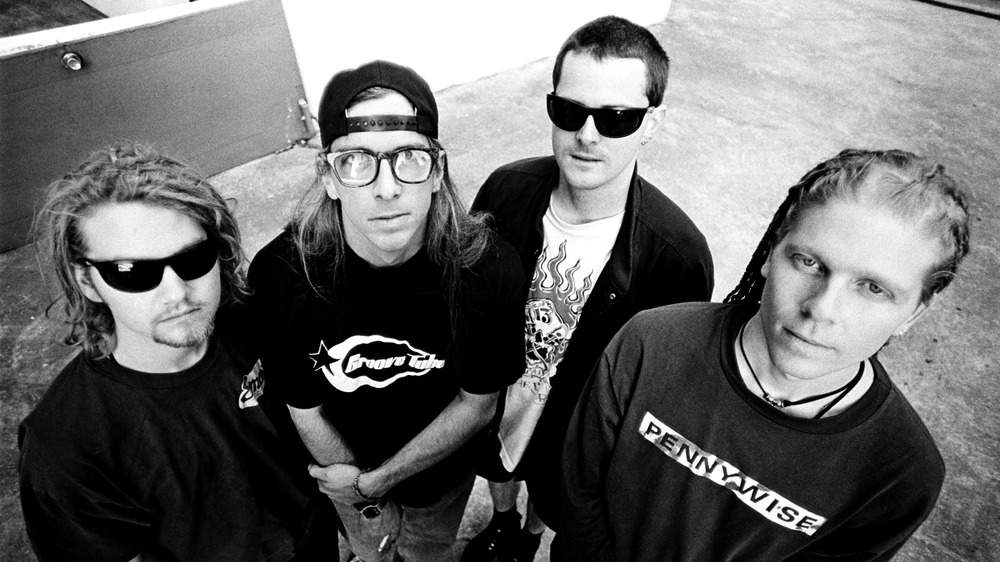The Unconventional Origins Of The Offspring's First Hit
The Offspring rose to prominence during the mid-'90s gritty, raw rock movement known as "grunge." Rather than hailing from the Seattle scene that produced the grim grime of Nirvana, Alice in Chains, Pearl Jam, and Soundgarden though, the Offspring were definitely the offspring of California's punk scene, which typically generated brighter-sounding bands like NOFX, Green Day, and Rancid, as well as punk's strange fusion subgenre, ska. It's easy to forget how tremendously popular the Offspring were, for a brief glimmer of time that shone and waned with their debut album, 1994's Smash.
Smash generated three giant singles that, along with decent MTV airplay, paved the way for the Offspring's success: the self-deprecatory, trashy "Self Esteem," the muscular beat and catchy hook of "Gotta Get Away," and the instantly recognizable, harmonic minor scale riff of "Come Out and Play." These heavy-hitting tracks propelled the Offspring into instant fame, despite the band struggling to gain recognition in their early days, per Rolling Stone.
Out of these three songs, "Come Out and Play," the band's first hit, lent the Offspring the most success. While it's easy to bob your head along with "Come Out and Play," or just hum along with the chorus, the track has a far deeper meaning and surprising origin that some folks might not pick up on. It's a bit tragic, a bit mournful, and comes from simple observation of everyday life in southern California.
An anti-violence track about gangs in Compton
"If you're under 18 you won't be doing any time / Hey, come out and play"
Rather than advocating violence, these lines written by Offspring frontman Dexter Holland were a tragic satire of the inner-city gang violence he saw in Compton, a Los Angeles County city known as "Hub City." As Kerrang! explains, Holland as a college student used to ride his "crappy car" through Compton on the way to the University of Southern California (USC). On the way he witnessed brutality between rival gangs Crips and Bloods, which inspired him to write "Come Out and Play" (and explains why the song's "You gotta keep 'em separated" line has a conspicuously cholo accent).
The track's lyrics tell the rest of the story, saying, "By the time you hear the siren / It's already too late / One goes to the morgue and the other to jail / One guy's wasted and the other's a waste," "Your never-ending spree of violence and hate / Is gonna tie your own rope," and, "It goes down the same as the thousand before / No one's getting smarter / No one's learning the score." Holland himself had no love for police, partly stemming from a tear-gas incident he experienced at a Dead Kennedys concert once, which may have heightened his sympathy towards victims of violence and in the end, made him just the right person to disguise and deliver an anti-violence message within a simple punk song.

